#lgbt studies
Explore tagged Tumblr posts
Text
Here are some of my favorite graphics from the new Contrapoints video




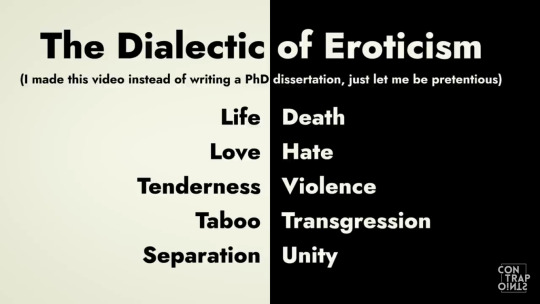

#the Jack Halberstam quote made me burst out laughing#maybe it’s just because it’s a shiny new video but I genuinely think this is Natalie’s best video essay yet#contrapoints#STRANGEAEONS MENTION!#lefttube#leftist#leftism#breadtube#natalie wynn#twilight#queer theory#lgbt studies#gay and lesbian studies#Jack halberstam#strange aeons#strangeaeons#camille paglia
36 notes
·
View notes
Text
Battleground Masculinity: Gendertroublers and Gatekeepers in Oliver Stone's Platoon (1986)
When Oliver Stone's autobiographically inspired war picture Platoon was released in the winter of 1986, it was one of the three movies that heralded a new era in the representation of the Vietnam war on the movie screen.1 Platoon set the tone for what was widely perceived as a realistic portrayal of the ordinary soldier's life in the war, a portrayal that refrained from inventing the Vietnamese as largely uncivilized and inhuman torturers, killers, and players of Russian Roulette and that took into account the cruelties and massacres occasioned by members of the United States armed forces. Time soon attributed its cover space to the movie and dubbed it "Viet Nam As It Really Was."2 Writer and director Oliver Stone was applauded for his sensitive and truthful account. The fact that his own tour of duty had inspired the film earned him the large-scale support of war veterans among the audience.
Yet Platoon is much more than a close-to-real-life depiction of a grunt's war experiences on the Vietnamese-Cambodian border. Due to its complexity as a cultural text, it is easily the one movie of its genre that has been most discussed and analysed in academia; having inspired well in excess of twenty scholarly articles on such issues as the film's Christian allegorical structure, the forces of good and evil, ritual and remembrance, the role of women, or colonialist subtexts in the film.3
Nevertheless, there remains a striking lacuna in the academic reflections on this culturally relevant filmic text, a blind spot that calls for attention.4 For while the homoerotic undertones of such homo-social genres as Western and war films have frequently been discussed, few movies have been engaged in negotiating the borders of the gender system as remarkably as Platoon.
Brief Summary
When young recruit Chris Taylor (Charlie Sheen) joins up with his unit in the Western part of Vietnam, he soon realizes that the platoon is split into two groups: the tough beer-drinkers and poker-players around Staff Sergeant Robert Barnes (Tom Berenger) and the music loving pot-smokers and dancers around Sergeant Elias Grodin (Willem Dafoe). Taylor finds himself oscillating between the toughness of Barnes and the moral integrity of Elias; and while he will come to incorporate traits of both, he is soon drawn into the den of the 'potheads.' Over the course of a few weeks, the platoon is involved in battle situations and actions of war several times, as it explores a booby-trapped bunker complex and loses some of its men; as the soldiers enquire about hidden weapons in a rustic village and come close to perpetrating a My Lai-type massacre; and as they are caught in an ambush and hit by friendly fire on patrol in the woods. Throughout these scenes, the animosities and rivalries between Barnes and Elias increase to the point where Barnes secretly murders his fellow soldier whom he perceives as a threat to successfully fighting and winning the war. In a furious climax, the platoon's position is overrun by VA forces and bombarded by the US Air Force. In the ensuing chaos, Chris takes revenge for Elias's death and shoots Barnes whom he has recognized as the responsible party. Injured, he is flown out of the battlefield.
War (Film) and the Feminine
It does not take much to realize that Platoon is doing without any female character of more than marginal importance. Where women appear at all, they figure as the victims of war atrocities and as sexual objects, or early on in the film as the absent receiver of the occasional letter home. Generally, though, Platoon presents a thoroughly male world where a lack of women is neither deplored nor, in fact, remarked upon. In the context of its genre, this consistent absence of female elements in narration and presentation is extremely rare. As has repeatedly been observed also in relation to the homo-social worlds of the generic Western movie, the occasional female character is important not only to slow down the narration and confront the male hero with moral and/or emotional conflicts; also, women characters are necessary in order to make sure that any sexual energy accumulating on the screen can find its place in socially indubitable heterosexual arrangements (cf. Esders; Neale).
Indeed, as Steve Cohan and Ina Rae Hark write in the introduction to Screening the Male (1993), "because the spectatorial look is so insistently male the erotic elements involved in the relations between the spectator and the male image have constantly to be repressed and disavowed" (3-4). Introducing a female character into the narration does, then, not only allow the (straight) male gaze to engage with a female form and avoid anxiety, it also helps disperse any doubts about the male heroes' sexual orientation and desires. Juxtaposed to a female object of desire, they smoothly assume their assigned places in a heteronormative society and are removed from the suspicion of homoerotic tendencies.5
At the same time, as philosopher Bar-On Mat-Ami has observed, especially in war films, women represent a 'rehumanizing power,' a moral force that counteracts the 'dehumanizing power' represented by the male. Where men kill and hurt and mistreat, women care and heal and cure. Without women's association with life, Mat-Ami argues, men, in their serious engagement with death, would not be able to come back home from the war and into their societies as whole human beings. If Platoon can do without any central female characters in its plot, she concludes, it is because the power to rehumanize is untypically attributed to a male character: Sergeant Elias.
Performing Masculinities, Differently
In fact, the two squads that the platoon is divided up into do not only stand for different choices of leadership and different preferences of night time entertainment; they also represent two different versions of masculinity.
On the one side, there are the 'Lifers' under the moral leadership of Sergeant Barnes: a predominantly Anglo-American circle whose members gather around beer, bourbon, and poker games. They share and enjoy heterosexual pornography and pride themselves in their physical strength. Bunny's (Kevin Dillon) proud display of his ability to bite a piece of aluminum from his beer can is one of the more curious proofs of excessive virile power. The atmosphere with the Lifers is sober as they sit in their well-lit tent, avoid physical contact with each other and preferably talk about sex and death. Barnes is the figurehead of their straight and no-nonsense masculinity: with his natural authority and self-denying courage he represents the classical, if not to say stereotypical, male hero. His association with weapons and his dedication to merciless fighting as well as his disfiguring scars6 clearly speak of his association with death and destruction.7 In the terminology of Mat-Ami, then, Barnes and the Lifers stand for a masculine, dehumanizing power. In the context of gender analysis, they represent a conventional, socially sanctioned and heteronormative way of being a man.
The pot-smoking 'Heads' around Elias, on the other hand, display a masculinity that is characterized by communal singing and dancing, by rituals of male bonding that involve uninhibited physical contact and a vague element of homoerotic seduction. Where the Lifers are basically passing time, the Heads' approach in their smoky, dimly-lit and altogether comfortable den is a considerably more dionysian one. The camera lingers on the naked, sweating bodies of dancers from different ethnicities and zooms in to a far greater closeness than it ever does with the Lifers. In this subtly homoerotic environment, Elias introduces stronger hints of queerness as he welcomes Chris into their community. Rather untypical of a courageous and responsible authority figure in a war movie, he acknowledges Chris's presence by waving at him, languidly reclined in a hammock, only half-clad, and sensually eating a banana. The ceremony of initiation that he performs later on with newly recruited Chris involves not only the passing of marihuana smoke through the phallic barrel of a gun but is also accompanied by a conspiratorial look and smile on the side of Elias and a somewhat curious yet disconcerted gaze by Chris – as though he were checking if anyone might watch and disapprove of this erotically charged moment. With its homoerotic overtones, the scene is strikingly reminiscent of the sexually coded passing of smoke through a straw in Jean Genet's gay prison art film, Un Chant d'Amour (1950), and it dissolves into a scene of soldiers relaxedly dancing with each other.
On the pictorial level, Elias's masculinity is coded as deviant and somewhat queer – especially in relation to the conventions of the genre. In excess of representing moral integrity, or, with Mat-Ami, the rehumanizing power in a dirty war, then, Elias might be considered to bear certain traits conventionally perceived as feminine: he is sensuous, emotional and caring, he promotes singing and dancing, and he cherishes romantic settings, as in the intimate conversation he has with Chris under a densely starred night sky with its obligatory shooting star.
Oedipal Structure
The film's distribution of characteristics traditionally conceived as masculine and feminine is underscored by the oedipal structure that governs the relationship among its three protagonists.8 When Chris is flown out of the battlefield, he ponders his experiences in Vietnam and observes: "I have felt like the child of these two fathers," Elias and Barnes. Given Mat-Ami's thesis, this would leave Elias in the position of the 'mother,' Barnes in the position of the 'father,' and Chris as the boy child of both. Indeed, the constellation between the characters repeats the traditional structure of desire, envy, and inclination to patricide developed by Sigmund Freud in Drei Abhandlungen zur Sexualtheorie (Three Essays on the Theory of Sexuality; 1905).
Chris and Elias soon develop a very strong bond that reverberates with a certain sexual desire (cf. the ritual of initiation discussed above). At the same time, Chris admires Barnes for his virility, his skill as a masculine, weapon-bearing leader. When, in what might be conceptualized as a primal scene, however, Chris realizes that Barnes 'fucks' with Elias, that he has in fact penetrated him with a projectile from a phallic gun, the symbolic son is rapidly possessed by the ardent wish to kill the symbolic father. By executing the patricide at the end of the film, Chris 'becomes' his father, he identifies with Barnes which enables him to dispose of the father and assume his position himself: "Only thing can get Barnes … is Barnes," Rhah (Francesco Quinn) observes in a preceding scene.
However, in a place like Stone's Vietnam, the Law of the Father does not go unchallenged, and rather than finding a stable place in the oedipal economy, Chris rises as a new brand of man, as the son of two fathers. He combines in himself the humanity and sensitivity of Elias and the toughness and violent relentlessness of Barnes. Achieving this feat, then, he does not only do justice to his oft-remarked upon association with Christ, heralding the advent of a new kind of man. Also, he follows the pattern of the classical Western hero's journey into the unknown, his confrontation with the moral darkness without and within him, and his ultimate rebirth as a more complete man, as one who can rightfully help construct a new and improved society.
Gatekeepers and Gendertroublers
The toting and wielding of the phallic gun – an instrument that, in the key scenes of the film, is presented as clearly ambivalent in its function in that it represents the possibility for both pain and pleasure – might be connoted with a certain jouissance.9 Nevertheless, the killings of Elias and Barnes are all essentially presented as jobs that need to be done, leaving the respective perpetrator disgusted, depressed, if not suicidal. Thus, after shooting Elias in the woods, Barnes resorts to getting heavily drunk. "I got no fight with a man does what he's told," he explains, "but when he don't, the machine breaks down, and when the machine breaks down, we break down. And I ain't gonna allow that."
Barnes, then, does not kill so much for the satisfaction of violent drives, but in order to guarantee the continuation of a system that he decidedly approves of. And just as he is prepared to take any necessary measure to win the war for his country, so he is ready to kill whoever provides a threat to the stability of the social machine that produces gendered – and straightly gendered – bodies for a heteronormative regime.10
"Elias is a troublemaker," Lieutenant Wolfe (Mark Moses) establishes at one point in the film – and indeed, Elias complicates and threatens to break up hegemonic gender structures. In addition to well-established elements of masculinity,11 his performance of being a man includes slippages, actions and ways of behavior that connote queerness and that do not quite fit into the heterosexual matrix. As he so frequently does in the film,12 Barnes takes responsibility in the face of these challenges to an established order and assumes the role of gatekeeper, of border patrol of the dividing line between morally sanctioned, 'correct' and deviant, 'wrong' performances of being a man. Elias, as an obvious threat to the heteronormative system, is punished in a way that exemplifies Judith Butler's observation that "we regularly punish those who fail to do their gender right" (1999: 178).13
In the case of Chris's murder of Barnes, things lie slightly differently: Chris doubts the prevailing system and wants to have it changed.14 "It's the way this whole thing works," he explains his lethargy after Elias's death. "People like Elias get wasted and people like Barnes just go on making up rules any way they want […]." For him, Barnes is revealed as (one of) the bearer(s) of a conformity proscribing system. Chris, however, has come to appreciate different ways of being and, under Elias's influence, has matured into a promoter of a far less restrictive gender system. So that eventually, Barnes himself has to die for his role and function in a system that might be about to come to an end as Chris surges from the ideological battlefield as the new, and more complete, man.
The 'child of those two fathers,' Barnes and Elias, Chris comes to integrate both their dehumanizing and rehumanizing powers. From Elias, he inherits tolerance and flexibility as much as the appreciation of the deviant and different; from Barnes, on the other hand, he takes the skills and abilities of the efficient gatekeeper. Returning home, one is bound to believe, Chris does not only carry the change that Vietnam has effected on him back into a United States society. Also, he might serve as both the constructor and the guard of a more flexible and comprehensive gender system, one that allows for deviantly doing one's gender and whose borders may, at the same time, be effectively defended against the infringement of delimiting and homogenizing forces.
Coda
Steve Cohan and Ina Rae Hark have remarked in relation to the "considerable force of the male in Hollywood cinema": "The scant attention paid to the spectacle of men ends up reinforcing the apparent effacement of the masculine as a social construction in American culture." Mainstream cinema, they claim, "screens out socially unacceptable and heterogeneous cultural constructions of masculinity" (2-3).
Platoon, while still offering itself as a realistic and authentically scripted representation of the Vietnam experience, does address as well as negotiate the construction of maleness in a heteronormative environment. The way that the film brings to the fore issues of masculinity and discusses the repressive forces inbuilt into any social system makes it stand out among mainstream films of any genre.
Christina Judith Hein, "Battleground Masculinity: Gendertroublers and Gatekeepers in Oliver Stone's Platoon (1986)," Current Objectives of Postgraduate American Studies, vol. 8, Mar. 2012
Endnotes:
1 The other two were Stanley Kubrick's Full Metal Jacket (1987) and John Irvin's Hamburger Hill (1987). Earlier films had presented the Vietnam war in the frame of a traditional Western plot (as did Ray Kellogg's and John Wayne's The Green Berets of 1968), as a psychedelic drug trip into the heart of moral darkness (Francis Ford Coppola's Apocalypse Now of 1979), or had primarily focused on the challenges that awaited both returning veterans and their home communities in the United States (the so-called homecoming films, with Hal Ashby's Coming Home of 1978, Michael Cimino's The Deer Hunter of the same year, and Ted Kotcheff's First Blood of 1982 as outstanding examples).
2 The issue appeared on January 26, 1987.
3 See the Works Consulted list at the end of this article for a complete account of scholarly articles on Platoon.
4 This essay is much inspired by the thoughts that Judith Butler has so poignantly formulated in her influential Gender Trouble: Feminism and the Subversion of Identity of 1990. It must be noted that Gender as well as Queer Studies have evolved considerably since the film's release in 1986, so that a critical look at the film and its negotiation of masculinities from today's perspective is warranted.
5 In the context of the productive power of censorship of speech in Excitable Speech: A Politics of the Performative (1997), Judith Butler remarks that "[i]n relationship to the masculine military subject, […] the norms governing masculinity will be those that require the denial of homosexuality" (131). The structural properties in films that center on homosocial communities and that portray a very conventional straight notion of masculinity (war films, Westerns, crime and mafia films) conform to this observation.
6 Over the course of his deployment in Vietnam, we learn, he has been shot and recovered seven times. Barnes is virtually deathless and can, as it turns out later on, only be killed by consent.
7 Or, as John Stone poignantly puts it: "Barnes could serve as the poster boy for anger" (82).
8 Freudian psychoanalysis and Hollywood mainstream narratives have existed in very close association, as has been remarked, among others, by Glen Gabbard. That entertainment film and psychoanalysis share the 1890s as their era of emergence in Western cultures is often taken to underscore their close connections. Interestingly, Sigmund Freud was himself approached by Samuel Goldwyn to collaborate on a love film about Anthony and Cleopatra, but he declined.
9 Again it is Bunny with his sadistic pleasure in the raid of the village who best exemplifies the excitement connoted with the use of a gun.
10 That Barnes should order Elias's men to "get back to church" when, in fact, he wants them to return to the specific ruin of a church where the platoon are regrouping, is telling in this context. His intention to get his soldiers 'back in line,' to get them to adhere to the doctrines of heteronormative gender conventions reveals itself in the grammatical slippage of his command.
11 It must not be overlooked here that in relation to conventionally approved performances of masculinity, Elias's way of being a man is excessive rather than deficient. His inclinations to queerness do not in any way stand in opposition to his qualities as an outstanding soldier but are complementary, additional. In this respect, Elias's gender performance combines a variety of differently coded traits, thus constituting an ever more subtle challenge to the fiction of a clearly discernible borderline in a binary gender system.
12 Barnes is invested in the film with the ability to see clearly through complexities and complications, and he is even credited by Chris as the man "at the eye of our rage – […] through him, our Captain Ahab – we would set things right again." Embodying the straight eye of the platoon's small-scope ersatz-society, it is Barnes's role and function to 'set things right again' where they have gone amiss. That he should draw from this strength and straighten out a queered gender order by disposing of Elias is therefore much in line with his character's setup.
13 It is important to note here, however, that whereas on the level of narration, Elias is punished for his deviant behavior, the film goes on to sanctify him, on the pictorial level particularly. The depiction of his death scene employs iconographic elements of a Christian tradition. Running from the woods and onto a clearing, pursued and repeatedly shot by enemy VA soldiers, Elias, like Christ under the cross, falls once, then twice. In a dramatic posture, he drops to his knees, flings his arms skywards, the film jumpcuts closer and closer to his face. Elias remains as in a position of crucifixion before the film further emotionalizes the sequence by repeating the moment of the last, deadly shot in slow motion. Samuel Barber's Adagio for Strings adds a note of tragedy as do the reaction shots to Chris who observes the goings-on from an elevated vantage point. Like Christ, one is bound to infer, Elias is sacrificed for a higher cause. The very sober execution of Barnes at the movie's end, mainly in full shot, stands in stark contrast to the spectacle of Elias's death. And while Barnes, tellingly, is killed after he has received a bullet wound uncomfortably close to the crotch, after an attack at his virility, that is, Elias maintains his queer position. As Laura Mulvey has noted in her influential essay, "Visual Pleasure and Narrative Cinema" (1974), it is usually the female figure that is turned into a "to-be-looked-at" spectacle on the screen – with the cutting up of her body by means of fetishizing close ups as a recurring stylistic device. Steve Neale, in "Masculinity as Spectacle" (1993), reads the violent intrusion on male bodies in war films as a way to mediate a desiring male gaze, to mark the male body as an erotic object that may be voyeuristically gazed at (16-18). In death, then, Elias evades the degradation and punishment that Barnes, in his role as gatekeeper of a heteronormative gender system, attempts to impose upon him, leaving open a number of queer strands.
14 As such, Chris himself becomes a part that does not 'function properly' and threatens to break down the machine that Barnes stands in for. The sergeant's battle crazed attempt at Chris's life just seconds before the final air strike might well be read in that vein. (On the moral plain, this scene establishes a connection between Barnes and a certain demoniacal force. Beside himself with rage, red-eyed, and ready to kill, he raises his arms in a way vaguely recalling Elias's death scene. The fiery and hellish lighting behind him, however, underscore an association with evil, as he is about to smash in Chris's head with a shovel. The opposition between Barnes and Elias is clearly stressed by these moments of Christian and Satanic contextualisations).
Works Cited
Butler, Judith. Excitable Speech: A Politics of the Performative. New York: Routledge, 1997.
—. Gender Trouble: Feminism and the Subversion of Identity. New York: Routledge, 1999.
Cohan, Steven and Ina Rae Hark. "Introduction." Screening the Male: Exploring Masculinities in Hollywood Cinema. Ed. Steven Cohan and Ina Rae Hark. London: Routledge, 1993. 1-8.
Esders, Karin. "The Return of Femininity: Romance and Reminiscences in the Western Film." Popular Culture in the United States: Proceedings of the German-American Conference in Paderborn, 14-17 September 1993. Ed. Peter Freese and Michael Porsche. Essen: Die Blaue Eule, 1994. 235-43.
Freud, Sigmund. Drei Abhandlungen zur Sexualtheorie. Wien: Deuticke, 1947.
Gabbard, Glen O. "The Psychoanalyst at The Movies." International Journal of Psycho-Analysis 78 (1997): 429-34.
Halberstam, David. "Platoon: Viet Nam As It Really Was." Time Magazine 26 January 1987: 54-62.
Mat-Ami, Bar-On. "Platoon and the Failure of War." Sexual Politics and Popular Culture. Ed. Dyane Raymond. Bowling Green: Popular P, 1990. 211-18.
Mulvey, Laura. "Visual Pleasure and Narrative Cinema." 1974. Film and Theory: An Anthology. Ed. Robert Stan and Toby Miller. Molden: Blackwell, 2000. 483-509.
Neale, Steve. "Masculinity as Spectacle: Reflections on Men and Mainstream Cinema." Screening the Male: Exploring Masculinities in Hollywood Cinema. Ed. Steven Cohan and Ina Rae Hark. London: Routledge, 1993. 9-20.
Platoon. Dir. Oliver Stone. USA, 1986.
Stone, John. "Evil in the Early Cinema of Oliver Stone: Platoon and Wall Street as Modern Morality Plays." The Journal of Popular Film and Television 28.2 (2000): 80-87.
Un Chant d'Amour. Dir. Jean Genet. F, 1950.
Works Consulted
Bates, Milton. "Oliver Stone's Platoon and the Politics of Romance." Mosaic: Journal for the Interdisciplinary Study of Literature 27.1 (1994): 101-21.
Beck, Avent Childress. "The Christian Allegorical Structure of Platoon." Screening the Sacred: Religion, Myth, and Ideology in Popular American Film. Ed. Joel W. Martin and Conrad E. Oswalt Jr. Boulder: Westview Press, 1995. 44-54.
Christopher, Renny. "Negotiating the Vietnam War Through Permeable Genre Borders: Aliens as Vietnam War Film, Platoon as Horror Film." LIT: Literature Interpretation Theory 5.1 (1994): 53-66.
Dalton, Mary and Jarrett Steve. "Platoon: The Fiction of History." Creative Screenwriting 3.2 (1996): 19-30.
Doyle, Jeff. "Missed Saigon: Some Recent Film Representations of Vietnam." Crossing Cultures: Essays on Literature and Culture of the Asia-Pacific. Ed. Bruce Bennett, Jeff Doyle, Satendra Nandan and Loes Baker. London: Skoob, 1996. 91-99.
Ecker, Michael. "Vietnam in the Genre Film: Essential Vocabulary of an Imaginary Hollywood File on Various Devices Expedient for the Success of (War) Movies." Modern War on Screen and Stage / Der moderne Krieg auf der Bühne. Ed. Wolfgang Gortschacher and Holger Klein. Lewiston: Mellen, 1997. 163-78.
Halberstam, David. "Platoon." Oliver Stone's USA: Film, History, and Controversy. Ed. Robert Brent Toplin. Lawrence: U of Kansas P, 2000. 110-19.
Hedges, Andrew. "Inter(Active)Textuality: An Examination of Platoon as a Film and as a Simulation Game." Kodikas 14.1-2 (1991): 175-83.
Helt, Richard C. "Kulturkritik or Anti-Americanism? The Reception of Recent Popular American Cinema in West Germany, with Special Focus on Platoon." Journal of Popular Culture 25.3 (1991): 189-97.
Hilbish, Melissa. "'Isn't It Just a Movie': Lessons Learned from Oliver Stone and Platoon." Reader: Essays in Reader Oriented Theory, Criticism, and Pedagogy 38-39 (Fall 1997 – Spring 1998): 42-62.
Jeffords, Susan. "Masculinity as Excess in Vietnam Films: The Father/Son Dynamics of American Culture" [with a reply from Claudia Springer]. Genre: Forms of Discourse and Culture 21.4 (1998): 487-522.
Kinney, Judy Lee. "Gardens of Stone, Platoon, and Hamburger Hill: Ritual and Rememberance." Inventing Vietnam: The War in Film and Television. Ed. Michael Anderegg. Philadelphia: Temple UP, 1991. 153-65.
Klein, Michael. "Historical Memory, Film, and the Vietnam Era." From Hanoi to Hollywood: The Vietnam War in American Film. Ed. Linda Dittmar and Gene Michaud. New Brunswick: Rutgers UP, 1990. 19-40.
Large, Ron. "Platoon: Fear, Loathing, and Salvation in Vietnam." Journal of Evolutionary Psychology 11.1-2 (1990): 116-23.
Lichty, Lawrence W. and Raymond L. Carroll. "Fragments of War: Platoon (1986)." American History / American Film: Interpreting the Hollywood Image. Ed. John E. O'Connor and Martin A. Jackson. New York: Ungar, 1988. 273-87.
Palmer, William J. "Symbolic Nihilism in Platoon." America Rediscovered: Critical Essays on Literature and Film of the Vietnam War. Ed. Owen W. Gilman Jr. and Lorrie Smith. New York: Garland, 1990. 256-74.
Porteous, Katrina. "History Lessons: Platoon." Vietnam Images: War and Representation. Ed. Jeffrey Walsh and James Aulich. New York: St. Martin's, 1989. 153-59.
Ringnalda, Donald. "Unlearning to Remember Vietnam." America Rediscovered: Critical Essays on Literature and Film of the Vietnam War. Ed. Owen W. Gilman Jr. and Lorrie Smith. New York: Garland, 1990. 64-74.
Schechter, Harold and Jonna G. Semeiks. "Leatherstocking in 'Nam': Rambo, Platoon, and the American Frontier Myth." Journal of Popular Culture 24.4 (1991): 17-25.
Schneider, Tassilo. "From Cynicism to Self-Pity: Apocalypse Now and Platoon" [with replies from Anthony R. Guneratne and Terry Dibble]. Cinefocus 1.2 (1990): 49-59.
Taylor, Clyde. "The Colonialist Subtext in Platoon." From Hanoi to Hollywood: The Vietnam War in American Film. Ed. Linda Dittmar and Gene Michaud. New Brunswick: Rutgers UP, 1990. 171-74.
#oliver stone#platoon#scholarly articles#academics#journals#academia#gender in platoon#gender studies#lgbt studies
4 notes
·
View notes
Text
TOP SURGERY FUCK YEAH does this mean I get to have a free one? No? Aww fuck
i just found out merriam webster has a time traveler feature that tells you some of the words that were “born” the same year as you. it’s pretty neat yall should do this
#I also got biohacking#exoplanet#LGBT studies#polyamory#and unfortunately transphobia#I don't want free transphobia thank you very much
280K notes
·
View notes
Text
youtube
THE HISTORY OF LILI ELBE.
1 note
·
View note
Text
I need to be in a miniskirt and tights walking around in a botanical garden for research with a clipboard and messy hair please thank you
#lgbt#lgbtq#lgbtqia#queer#transfem#trans#transgender#lesbian#sapphic#yearning#botany#plants#I wanna take care of plants for the rest of my life instead of infront of a computer#Reading hdg kinda pushed the idea into my head but it has stayed for some time now#like I actually want to study biology and botany now#I love plants
2K notes
·
View notes
Text
this is by no means comprehensive, as this app has a skewed demographic to begin with, but I'm just trying to decide on whether this is a worthwhile topic for the women and gender studies project I'm doing.
#im sorry i know this is so not dyslexia friendly but i didn't know how else to word it#science side of tumblr#queer#queer community#double minority#adhd#audhd#autism#lgbt#lgbtq#lgbtqia#lgbtq community#neurodivergent#actually neurodiverse#neurodiversity#gender studies#fuck gender norms#queer pride#trans#transgender#poll#tumblr polls
2K notes
·
View notes
Text
Rare Language Learning: Polari
If you have ever used the words:
- Naff
- Butch
- Camp
You have unknowingly been speaking the sociolect known as Polari, the language of queer people primarily used in the 30s to the 70s. Polari is now an endangered language, as labelled by the University of Cambridge
Something of note: Many resources out there imply (or state) that Polari was a language invented and used solely by white cis gay men, which is decidedly untrue. Many words of Polari come from drag culture, lesbians, and the Romani people and their language. The use of ‘the language of British gay men’ may be a more palatable title to the general public, but it is not to me. I did my best to curate a variety of resources, but unfortunately much of queer history has been lost many more decades than I’ve been alive, if you have any other resources for studying Polari I would love to read them, message me or leave a link in the replies.
Articles
Learn Polari, the Secret Language of the Gays ⚢ Out Magazine
Polari: The code language gay men used to survive ⚢ BBC
Polari and the Hidden History of Gay Seafarers ⚢ National Museums Liverpool
The Story of Polari, Britain’s Secret Gay Language ⚢ Fabulosa!
Polari People ⚢ Fabulosa!
Polari: a language born from prejudice ⚢ Englishpanish
The secretive gay language that gave LGBTQ people a voice ⚢ GAYTIMES
A brief history of Polari: the curious after-life of the dead language for gay men ⚢ The Conversation
Study Material
The Polari Bible ⚢ Internet Archive
Fantabulosa: A Dictionary of Polari and Gay Slang ⚢ Internet Archive
Sociolinguistics / Polari ⚢ StudySmarter
FlashCards ⚢ Quizlet
New Polari Translator ⚢ LingoJam
Polari: A sociohistorical study of the life and decline of a secret language. ⚢ Dissertation, University of Manchester
Polari: a language born from prejudice ⚢ Englishpanish
Simon Bowkett: a short blog in Polari for LGBT+ History Month ⚢ Civil Service LGBT+ Network
#academia#studyblr#university studyblr#uni#university#student#linguistics#language study#language learning#langblr#languages#endangered languages#queer history#queer history month#lgbtq community#lgbtq history#lgbtq history month#lgbt#lgbt history month#queer academia#queer community#linguistic#Polari#Polari language#dialect#sociolect#pride#uk history#English history#university student
711 notes
·
View notes
Text
Did you guys know that if you read Andrea Long Chu’s Females while listening to Crywank’s entire discography you can speed run the stages of grief?
#can you tell I’m going through it#the last 2 weeks has been literally some of the worst I’ve felt in years#andrea long chu#is Andrea long chu trans theory?#like yeah she’s thinking trans but she’s also FEELING trans#on liking women is something I wish my queer theory professor put in our affect theory section this semester#gender studies#queer studies#females by Andrea long chu#queer theory#trans studies#trans theory#lgbt studies#queer#trans#crywank#indie folk#anti folk#vague posting
3 notes
·
View notes
Text
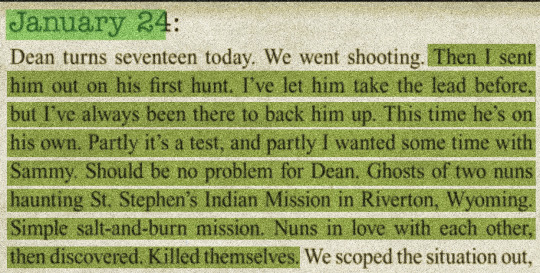
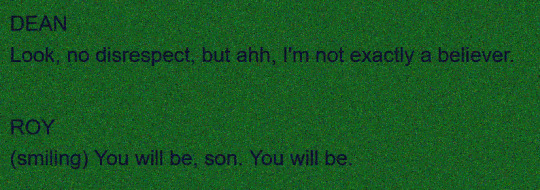
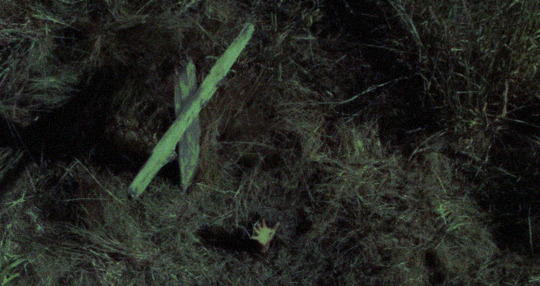
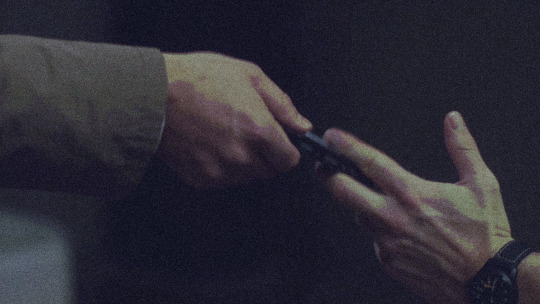

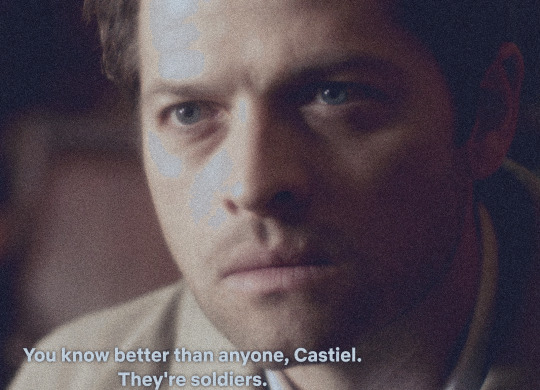
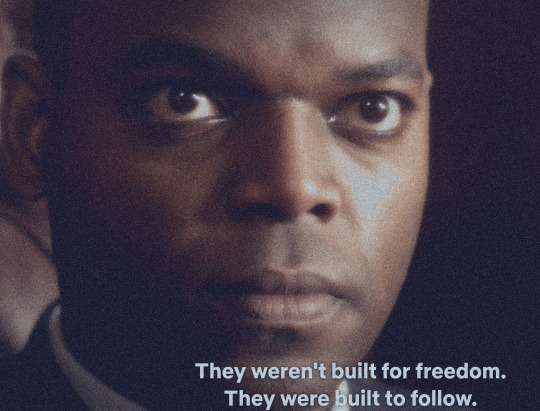

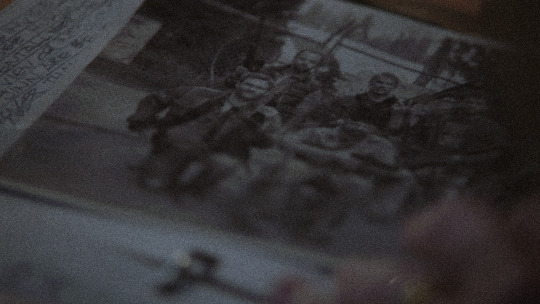

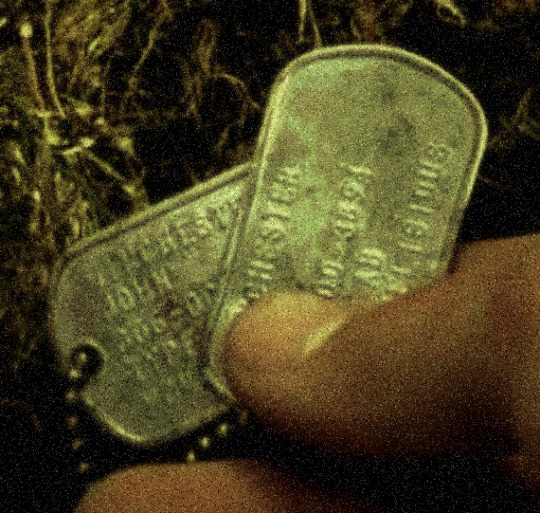




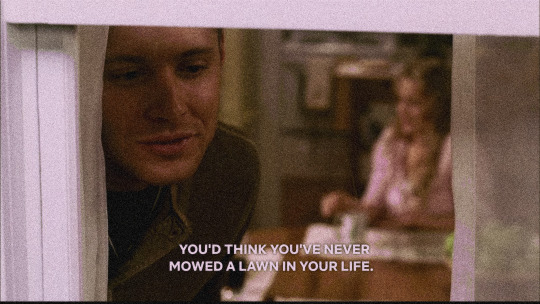

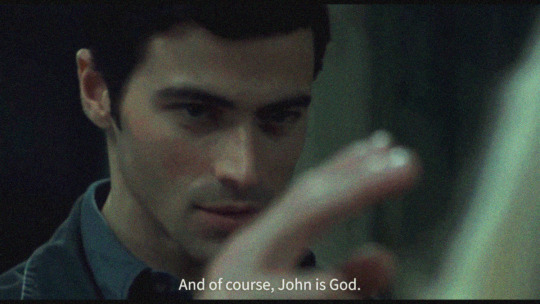
☆ john winchester's journal | 1x12 - faith | 4x01 - lazarus rising | 12x19 - the future | 5x04 - the end | 6x20 - the man who would be king | john winchester's journal | 12x02 - mamma mia | john winchester's journal | 2x04 - children shouldn't play with dead things | john winchester's journal (x3) | 2x20 - what is and should never be | 6x20 - the man who would be king | supernatural season 5 disc 6 special feature commentary
#cas.art#dean winchester#dean web weaving#web weaving#web weave#spn web weaving#supernatural#art#spn art#parallels#supernatural web weaving#lgbt dean winchester#meta#john winchester#mary winchester#destiel#cas#spnedit#dean studies#john winchesters a+ parenting#Hi i hope this makes a lick of fucking sense#i hope the vision is there#do you guys see it. do you know what im Talking About#i havent slept for 19 hours#hope this is coherent and perhaps good<3 ily all#also thank u soo so so soo much ro for the john winchester god clip o7
3K notes
·
View notes
Text
Do you read fanfiction? Are you queer? Well then I’ve got the perfect survey for you!
Hi! I’m a student writing a research paper on the prevalence of queer couples and lgbtq+ representation in fanfiction and need participants for my survey. This project will be entered in a national Norwegian research competition and will be judged by an academic jury. The more answers I get on this survey, the more accurate my research will be, so I'd really appreciate it if you would take the time to answer!
https://forms.gle/Tcoafs9dU627PNcn8
The survey is now closed! Thank you to everyone who participated!
Now, some of you might be thinking “Hey, I’ve seen this survey before.” And you’d be correct. I have a full explanation as to why here [https://at.tumblr.com/mariathechosen1/queer-participation-and-representation-in/i689fhq3b2vn], but the short explanation is that the original survey was meant for a much smaller sample size and after getting 8000 (!!!) answers on the past survey we decided we had to redo it in proper compliance with the GDPR. If you have any questions about this decision, or about the past survey, please read the FAQ post before contacting me or the project supervisor.
In contrary to the former survey, this research is specifically aimed at queer individuals who read and/or write fanfiction. Both people who answered and didn’t answer the last survey may answer this one.
Here are some reasons to participate:
Science and stuff
Force a highly prestigious academic jury to read more than 20 pages about gay fanfiction
Better my chances of winning real-life money by writing more than 20 pages about gay fanfiction
Help expand a largely ignored academic field (fandom studies)
It’ll only take like 8 minutes (5 minutes if you’re quick)
Uhhmmm…
Please?
#fanfiction#survey#fandom survey#wlw#mlm#lgbtq#lgbt#ao3#bisexual#signal boost#writeblr#transgender#polls#lesbian#gay#academia#queer#writers on tumblr#fandom studies#queerficsurvey#<---- please block this tag if you feel this post is a obstructing a tags page in any way
3K notes
·
View notes
Text
"Sodomy and the pirate tradition" (B. R. Burg, 1983)
Short intermission from fanart: I recently learned that there is a 1983 book called "Sodomy and the pirate tradition" and it got fucking Blackbeard on the cover 🤣🤣🤣
Just wanted everyone to know about that.

The author is still alive and seems very cool. His attitude on the back cover was basically:
I'm not saying all pirates are gay and I'm definitely not trying to argue the obvious and indisputable fact that they had tons of gay sex. I want to look at what homosexuality being okay and even encouraged meant for pirate society.
When I posted this on Reddit a month ago I was informed that he is still very much alive and super excited about OFMD, hadn't watched it yet though because he's hard of hearing and wasn't sure how to at the time the commenter talked to him which is both heart-warming and heart-breaking. 🥺
I hope he's figured it out by now.
(I was able to get a free ebook version through a university library BTW. Haven't gotten around to reading it yet though)
#ofmd#our flag means death#edward teach#pirates#B. R. Burg#Extremely specific academic literature#blackbeard#gender studies#History of homosexuality#queer history#gay pirates#lgbt history#Pirate#Pirate society#Matelotage
165 notes
·
View notes
Text
I’ve been hyperfixating on him for like 3 weeks now help me 💀💀💀😭
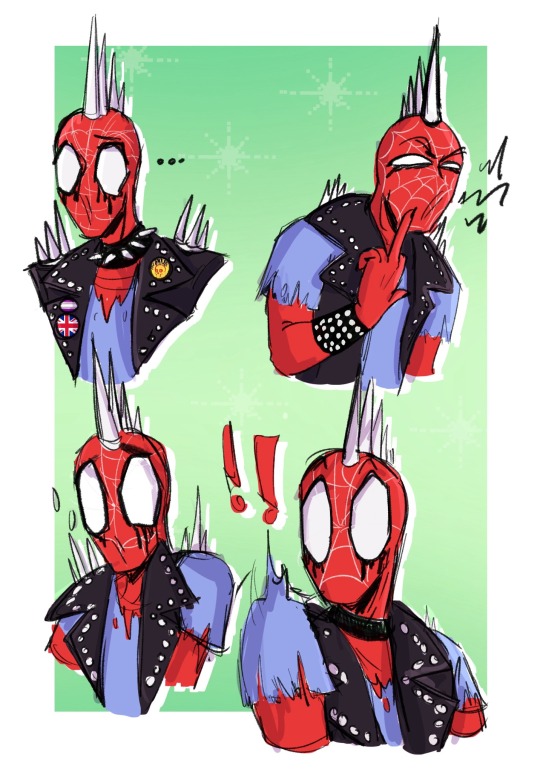
I hc im as greysexual I can’t be the only one 🧍♂️
#digital art#drawing#procreate#across the spiderverse#spiderman into the spiderverse#hobie brown#hobie my beloved#help me this is a drug#I love him so much#spider man#spider punk#expression study#doodle#headcanon#lgbtqiia+#lgbt headcanons#British spider man#bri’ish
453 notes
·
View notes
Text
free commissions

hiyo ✧∘ ! i’m offering free [watermarked] art to build my illustrative portfolio, expand my comfort zone, understand my artistic style, create diversely, *and* use them as commission references when the time comes.
at this time, i welcome head shot, bust up, thigh up, and full body requests with simple or transparent backgrounds. nsfw work is on the table, as well as furry, and minimal gore.
please join my discord server and pm me with requests — ♡

here's some examples ↓


#art#nostxlgiax#by ciani jayde#free art#art for others#art support#art suggestions#art studies#art style#art trade#artists on tumblr#digital art#digital illustration#portfolio#discord server#lgbt#queer#small artist#art commisions#artblr#artitst on tumblr
159 notes
·
View notes
Text
*Your extra credit gender assignment's due. If you want to better your grades, there better be memes, geologic formations, poetry, prose, and fanart of games I didn't play on my desk by the end of the week, or I won't be able to grade them before gender finals.
#my polls#shitpost#poll#tumblr polls#nonbinary#transfem#transmasc#trans#transgender#genderfluid#genderqueer#gender#Agender#bigender#lgbtqia#lgbt pride#queer#You don't have to submit a gender assignment but if you didn't study for gender finals it might be the difference between a pass and fail.#Treat this post like ao3(song lyrics for titles- weird headcanons- crossovers) and you will get extra points towards your gender grades.#Or just name your favorite spider. Whatever gets the point across.
175 notes
·
View notes
Text
I never thought I would see the day when I have to block Caitvi tags out of discomfort. But Vi's treatment in Arcane's season 2 narrative reminds me of that one Tumblr post that goes "hot take but supporting butches doesnt mean just being attracted to them". How butches will be treated as men lite, fetishized and objectified and reduced to objects of desire, and that abusing and fetishizing them is acceptable because "they can take it"
It deadass feels like they reduced Vi to a sexy muscle mommy with no characterization other than being Caitlyn's hot gf who is sad sometimes and punches things. Completely ignoring her character arc, the way she sacrifices everything to protect the people she loves and constantly belittles herself and does self harm in form of alcoholism and her whole pit fighter arc...and for what? They never touch on those issues, all of her pain is forgotten as soon as she gets back together with Cait
Even the fact that Caitlyn physically assaulted her and then had a rebound with Maddie, is brushed aside by Vi forgiving it all. It made me sick to my stomach because it could have been a plot point to address Vi's own self hatred, but no, the centrist ass writers were too afraid to make people uncomfortable by actually having Caitlyn face consequences for her actions.
Cherry on top: the timeline where everything is good is where Vi is dead (the romanticization of self destructive behavior and ableism in this season is a whole other can of worms...oh Jinx what did they do to you), and in the ending scene Vi calls herself "the dirt under Caitlyn's nails", being reduced to her cop girlfriend's property
It upsets me viscerally because I was SO invested in Caitvi back when season 1 aired and I loved them and was excited to see where their relationship would develop in season 2. We were getting a big lesbian ship that actively has sex, has flaws and a passionate slowburn, addresses class differences and the effects of police violence, but instead the writing completely killed the ship for me.
#Shit like this is what makes a butch like me so scared sometimes#Like is this all that you guys see us as. Our worth is based on how conventionally attractive we are.#Yes i know ive been an aardman blog LMAO but im also a huge fan of arcane#Or at least i was. Season 1 was spectacular and it inspired me to study cgi#Anyways imma imagine Vi breaking up with Cait and getting together with a femme gf who actually treats her lovingly#Arcane critical#Caitvi critical#Lesbian#Lgbt
76 notes
·
View notes
Text


meat counter, 2024
Gouache
#meat#meat art#meatart#meat still life#meat painting#raw meat#gore#gorecore#meatcore#creepy art#red#blood#artists on tumblr#female artists#lgbt artist#gouache#gouache paint#gouache painting#illustrators#illlustration#illustrator#still life#still life study#food painting#food art#food still life
248 notes
·
View notes